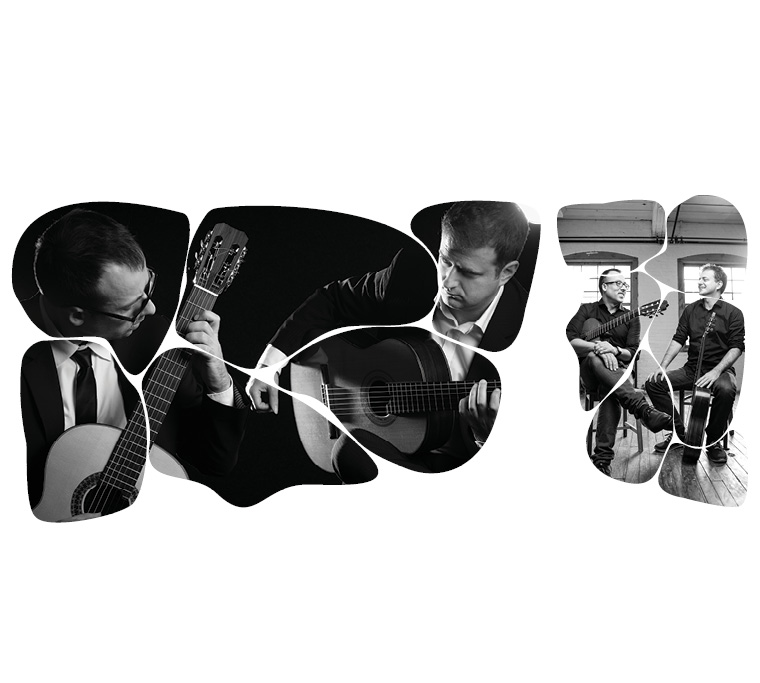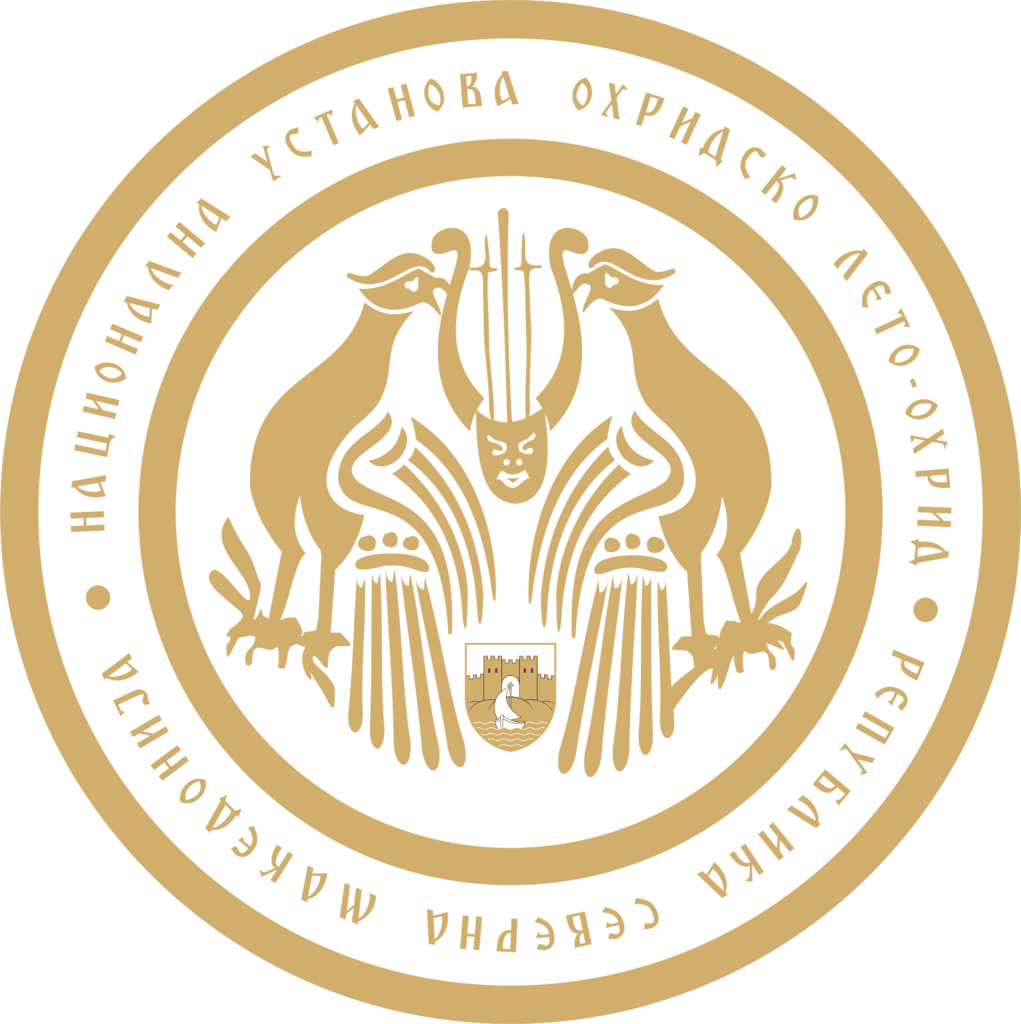
With the series of brilliant chamber concerts, Ohrid Summer Festival once again, on its 62nd edition, confirmed its year-long mission – promotion of topmost music artists from around the world. The concert of the Montenegrin guitar duo was a precious occasion, the audience filled the St Sophia church and enjoyed the enchanting performance of the guests from Montenegro – Goran Krivokapic and Danijel Cerovic. Those are two outstandingly prominent artists with rich solo careers and notable teaching activity in many European music centres. The recital performance at Ohrid Summer Festival revealed the duo as a much synchronized chamber ensemble with a rich concert background. The programme this duo offered was an excellent choice, serious, yet “summer-appealing” enough to present the convincing performance of the artists in front of the audiences in Ohrid. On the first place we should underline: we heard two masterly prepared arrangements – for the Bach’s 6th English Suite in D minor, written for harpsichord made by Goran Krivokapic and Danije Cerovic and for the Suite “Troileana” by Astor Piazola, originally for jezz set, arranged by the Brazilian guitarist Sergio Assad.
There is an organic connection between the English and French suites by Bach with the traditional early-Baroque dancing suites played by the French laute players. Henceforth, the sound image created by the guitar duo with performing the English suite moved between the sister colours of archaic laute, Baroque harpsichord and classic guitar, especially suitable in the acoustic space of our ancient temple. On the other hand, each hearing of the Sixth Suite in D minor is a new reminder of the inevitable genius of Bach’s music. In each of the eight movements, the guitarists with strong technical precision and sense for details brought the versatile characters and dance moods. The two-part Prelude made from a pedal point intro and a demonically long fugue in the style of perpetuum mobile, was played focused, compact and with a notable technical clarity of the fast treble passages (Goran Krivokapic), originally written for a keyboard instrument, which undoubtedly is a challenge to be performed on a guitar. In a similar manner they played the “devilish” 12/16 Gigue, in a tempo fast enough for a finale. The three-voice contrapunct in the Alemanda, skillfully split between the two guitars, sounded reservedly, nobly, opposite to the dancing, playful Gavottes in D minor and D major. The courante, with a fluid, unstopped and notable keyboard facture, Danijel Cerovic, as bearer of the bass part, brought with unbelievable precision, in a single breath. We will point out the performance of the poetic Sarabande. Both guitarists with this vintage piece brought us into the world of lautists from the early 17th century. With a tempered rubato in the luxurious arpeggios, we discover the other, expressive side of the rich musicality which these talented artists certainly possess. The guitar duo elicited from their instruments a very subtle spectrum of dynamic nuances set in a gentle volume. Simply, we should note at least part of the fine details in the performance, because the English Suite in D minor was a brilliant match of a piece, master piece by Bach, (by the way, amazing music) and a masterly performance of two guitars.
As an excellent contrapunct to the dynamic Baroque motorics in the first part of the concert, we heard the Suite Troileana from the 1975, dedicated to the famous Argentinian bandoneon player, Anibal Triolo – part of the fantastic world of Astor Piazzola. Nevertheless, the genius improvisations of the Baroque masters are conception and inspiration for jazz music in the 20th century. The audience was pleased to hear the charming movements Bandonean, Whiskey, Zita and the effective Escolasso, in which the artists, with unhidden enjoyment, played revealing a different perspective of their artistic taste. “Nuevo tango” is full of free jazz harmonies. Here we heard a fully relaxed interpretation with tempered agogics. The pleasure at music playing was obvious, and was easily transferred to the audience.
Besides the two transcriptions, as a finish-up we heard the two “fiersome” dances, directly coming from the traditional flamonce – “Dance of the muller” and the famous, seducing “Ritual Fire Dance” by the Andalusian composer Manuel de Falla. The guitarists performed the effective dances nobly, with a notably synchronized rhythmics in the style of flamenco and expressive sudden dynamic contrasts. However, that wasn’t the end of the concert. In continuation we heard an unusually long encore, the “Circus Suite” by the contemporary Italian guitarist and composer Carlo Domenicani. That was a perfect finale, which gave the concert an additionally joyful and attractive tone. The programme collage from Spanish, Greek, Russian and well-known circus themes, with an authentic interpretation, was an excellent ending of this colourful concert.
Guitar is an instrument of intimacy, its attractiveness is limited to a concensed, gentle volume, but in the hands of masters like Goran Krivokapic and Danijel Cerovic, you can experience the full luxury of colours hidden in the six strings.
The performance of the Montenegro guitar duo was yet another pearl of Ohrid Summer Festival.
Vikica Kostoska Peneva

